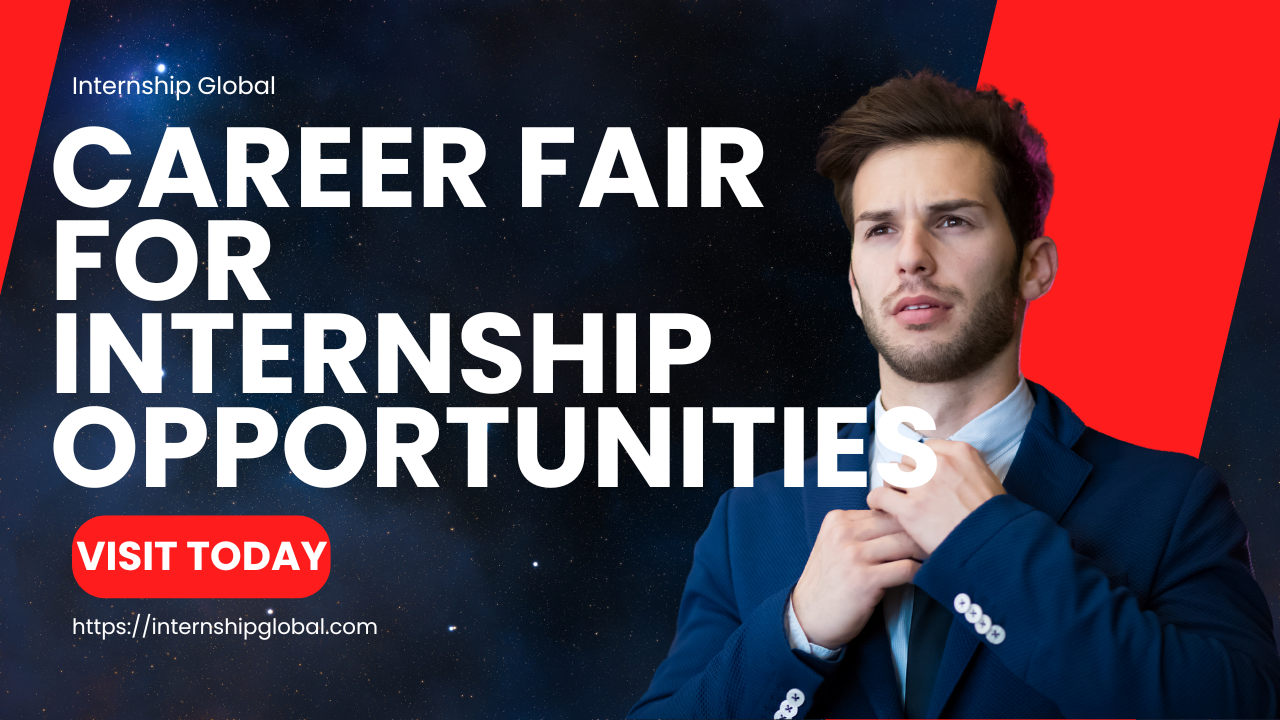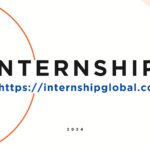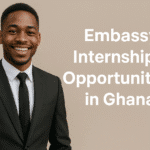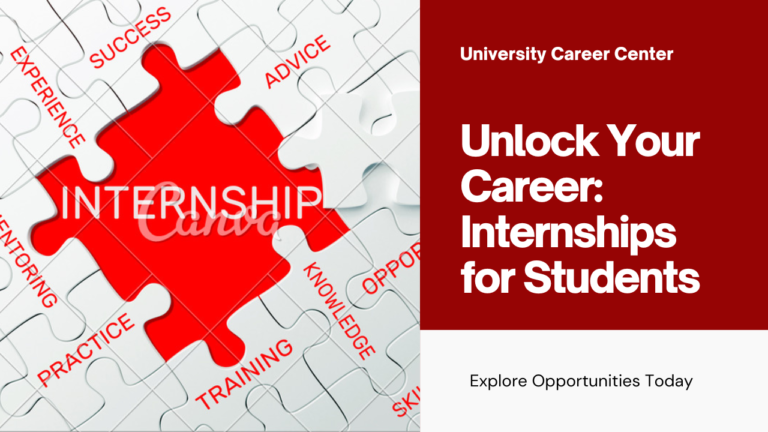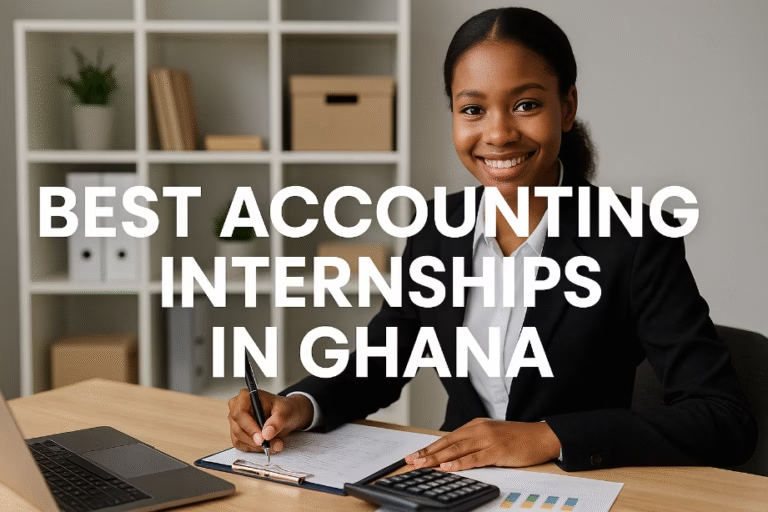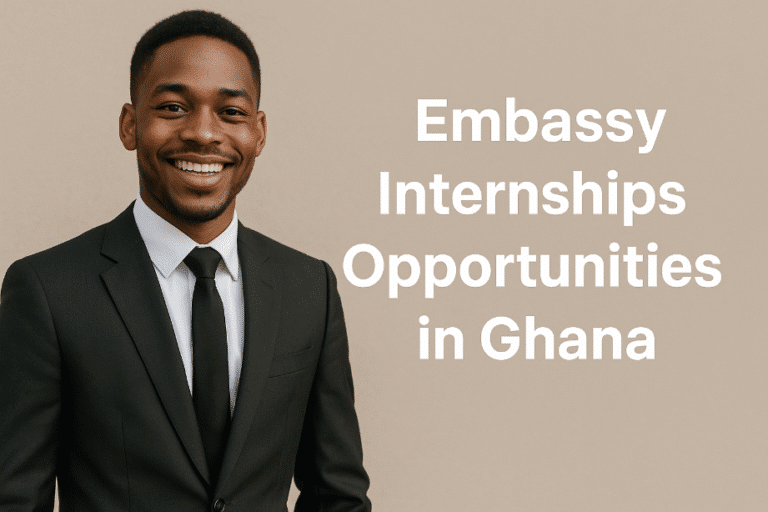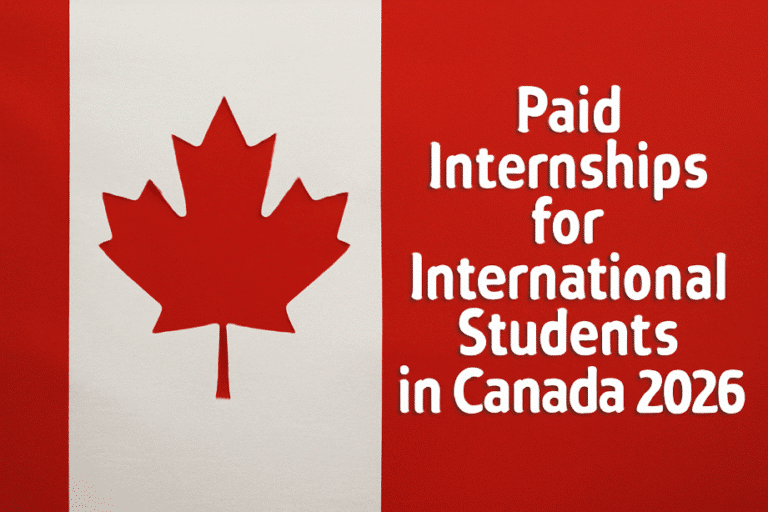Career Fairs for Internship Opportunities: A Guide for Students and Recent Grads
Click to unlock exclusive FREE OPPORTUNITIES
In today’s job market, career fairs have emerged as invaluable platforms for students and recent graduates seeking internship opportunities. These events serve as a bridge between academic pursuits and professional aspirations, offering a unique chance to interact with potential employers face-to-face. As the job landscape continues to evolve, understanding the dynamics of career fairs has become crucial for those looking to kickstart their careers.
Career fairs are organized events where employers and job seekers come together to exchange information about potential employment opportunities. These gatherings provide a concentrated environment for companies to showcase their internship programs and for attendees to explore various career paths. According to a recent survey by the National Association of Colleges and Employers (NACE), 85.7% of employers utilize career fairs as part of their university recruiting strategy, underscoring the significance of these events in the hiring process.
Click to unlock exclusive FREE OPPORTUNITIES
The importance of internships cannot be overstated in today’s job market. A study published in the Journal of Education and Work found that students who completed internships were 15% more likely to secure full-time employment within six months of graduation compared to those who did not. Internships provide practical experience, industry insights, and networking opportunities that are invaluable for career development.
In North America, Europe, and Africa, career fairs play a pivotal role in connecting students with internship opportunities. However, the landscape of these events varies significantly across regions. In North America, university-sponsored career fairs are commonplace, with many institutions hosting multiple events throughout the academic year. Europe, on the other hand, often sees a mix of university-led and industry-specific fairs, with a growing emphasis on international opportunities. In Africa, career fairs are gaining traction as economic growth in various countries creates new demands for skilled interns and graduates.
Click to unlock exclusive FREE OPPORTUNITIES
Read Also: Job Boards and Websites for Global Internships Opportunities
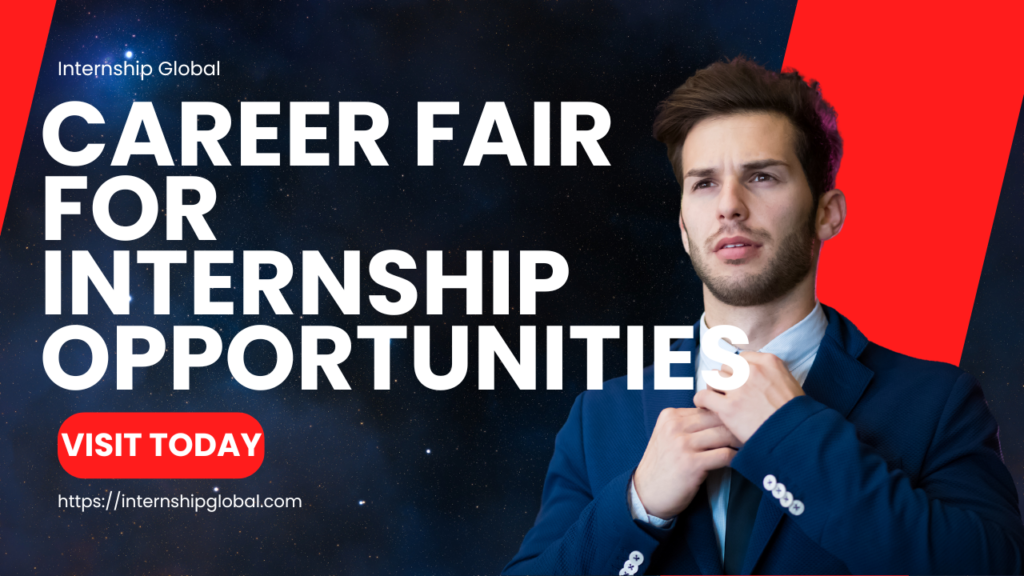
Types of Career Fairs
Click to unlock exclusive FREE OPPORTUNITIES
Understanding the different types of career fairs can help attendees target their efforts and maximize their chances of finding suitable internship opportunities. Here are the primary categories of career fairs:
University-Sponsored Events
These fairs are organized by educational institutions and typically cater to their own student body and alumni. They often feature a diverse range of employers across various industries. University career centers play a crucial role in coordinating these events, which may occur once or multiple times per academic year. For instance, the Massachusetts Institute of Technology (MIT) hosts several career fairs annually, including a fall career fair that attracts over 400 employers and 6,000 students.
Industry-Specific Fairs
Click to unlock exclusive FREE OPPORTUNITIES
Focused on particular sectors or fields of study, these fairs allow students to connect with companies relevant to their career interests. Examples include technology fairs, engineering expos, and healthcare recruitment events. The Grace Hopper Celebration, the world’s largest gathering of women technologists, serves as both a conference and a career fair, attracting major tech companies and thousands of attendees annually.
Virtual Career Fairs
The digital transformation of the job market has led to the rise of virtual career fairs, a trend accelerated by the global pandemic. These online events use video conferencing and chat platforms to facilitate interactions between employers and job seekers. According to a report by Handshake, a leading career network for college students, 89% of employers planned to participate in virtual recruiting events in 2021, indicating a significant shift towards digital engagement.
Regional and National Job Fairs
Click to unlock exclusive FREE OPPORTUNITIES
These large-scale events attract a wide range of employers and job seekers from across a geographic area. They may be organized by government agencies, industry associations, or private companies. The National Career Fairs organization, for example, hosts events in major cities across the United States, providing opportunities for both local and national companies to connect with potential interns and employees.
Each type of career fair offers unique advantages, and students should consider attending a mix of these events to broaden their exposure to internship opportunities. By understanding the nature of different career fairs, attendees can tailor their approach and increase their chances of making meaningful connections with potential employers.
Preparing for Career Fairs
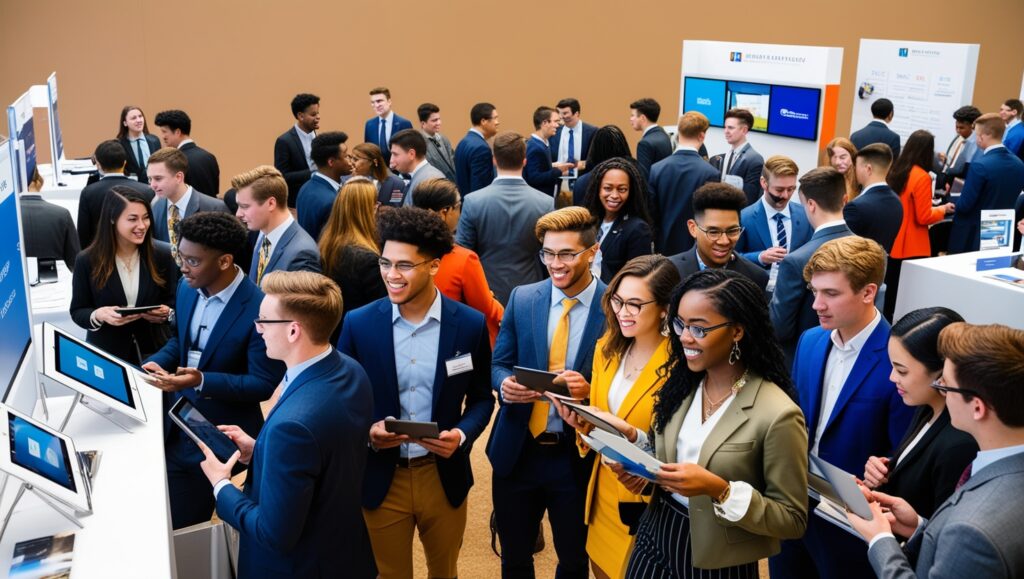
Click to unlock exclusive FREE OPPORTUNITIES
Thorough preparation is crucial for making the most of career fair opportunities. A well-prepared attendee is more likely to make a lasting impression on potential employers and secure valuable internship leads. Here’s how to effectively prepare:
Researching Participating Companies
Prior to the event, obtain a list of attending companies and conduct in-depth research on those that align with your career interests. Familiarize yourself with their mission, recent projects, and internship programs. The Harvard Business Review emphasizes the importance of this step, noting that candidates who demonstrate knowledge of a company are 62% more likely to secure an interview. Utilize company websites, annual reports, and news articles to gather relevant information.
Updating and Tailoring Your Resume
Click to unlock exclusive FREE OPPORTUNITIES
Your resume is often the first tangible representation of your skills and experiences that employers will encounter. Ensure it’s up-to-date and tailored to highlight experiences relevant to your target internships. According to a study by Ladders, recruiters spend an average of 7.4 seconds reviewing a resume, underscoring the need for a clear, concise, and impactful document. Consider creating multiple versions of your resume to cater to different industries or roles you’re interested in.
Crafting an Effective Elevator Pitch
Develop a concise, compelling introduction that summarizes your background, skills, and career aspirations. This 30-60 second pitch should be memorable and spark interest in further conversation. Practice your pitch until it feels natural and confident. The National Association of Colleges and Employers (NACE) advises including your name, major, relevant experiences, and specific interest in the company you’re addressing.
Dressing Appropriately
Click to unlock exclusive FREE OPPORTUNITIES
First impressions matter, and your attire plays a significant role in how you’re perceived. Opt for professional attire that aligns with the industry standards of the companies you’re targeting. A study published in the Journal of Social Psychology found that individuals dressed in business attire were perceived as more competent and trustworthy. When in doubt, it’s better to err on the side of being slightly overdressed than underdressed.
Gathering Necessary Materials
Prepare a portfolio containing multiple copies of your resume, business cards (if you have them), a notepad, and pens. For creative fields, consider bringing samples of your work. If the fair is virtual, ensure all your documents are in easily shareable digital formats. A survey by Jobvite revealed that 93% of recruiters review candidates’ social media profiles, so make sure your LinkedIn and other professional online profiles are up-to-date and reflect the information on your resume.
Finding Career Fairs in North America
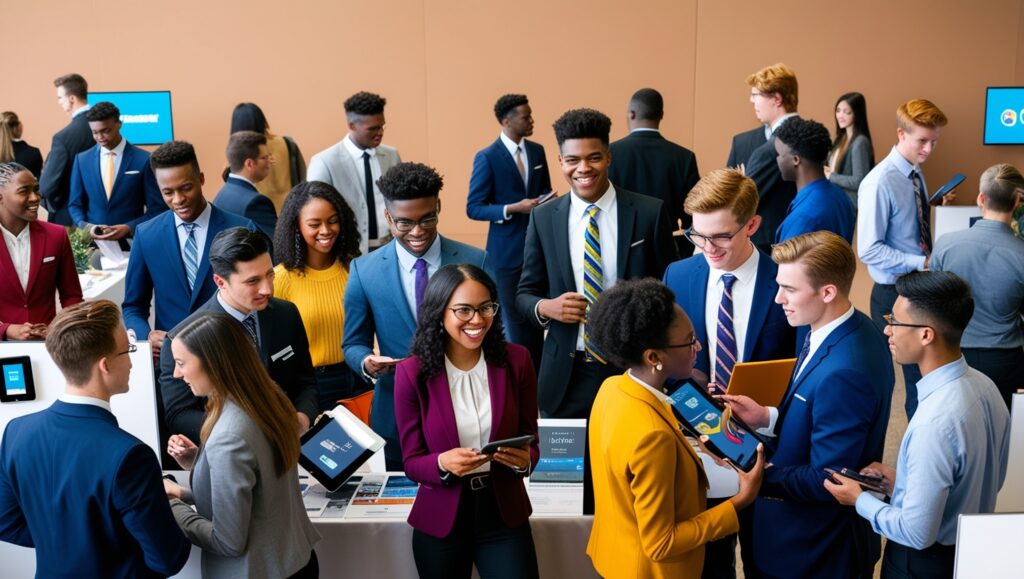
Click to unlock exclusive FREE OPPORTUNITIES
Career fairs in North America, particularly in the United States and Canada, offer a wealth of opportunities for students and recent graduates seeking internships. Understanding the nuances of these events can significantly enhance your chances of success.
Popular Career Fair Events and Organizers
North America hosts a variety of career fair events throughout the year. Some of the most notable include:
- NACE (National Association of Colleges and Employers) Job Fairs: These events bring together employers and job seekers from across the country.
- Industry-specific Fairs: For example, the Grace Hopper Celebration for women in technology or the National Black MBA Association Career Fair.
- University Career Fairs: Major institutions like Stanford, MIT, and the University of Toronto host large-scale fairs that attract top employers.
- Regional fairs: Organizations like National Career Fairs host events in major cities across the United States.
Click to unlock exclusive FREE OPPORTUNITIES
The Career Planning Handbook by Boston University reports that attending multiple fairs increases a student’s chance of securing an internship by up to 40%, highlighting the importance of active participation in these events.
Industry Trends and High-Demand Sectors
In North America, certain industries consistently show strong representation at career fairs. According to the U.S. Bureau of Labor Statistics, sectors such as technology, healthcare, finance, and renewable energy are experiencing rapid growth and actively seeking interns. The COVID-19 pandemic has also accelerated demand in fields like e-commerce, digital marketing, and cybersecurity.
For instance, a report by CompTIA found that the tech sector added 391,000 jobs in 2020 despite the pandemic, indicating robust internship opportunities in this field. Similarly, the healthcare sector is projected to add 2.4 million jobs between 2019 and 2029, signaling ample opportunities for internships and entry-level positions.
Networking Strategies Specific to North American Culture
Networking is a crucial aspect of North American professional culture, and career fairs provide an excellent platform for building connections. Here are some strategies tailored to the North American context:
- Be Proactive: North American business culture values initiative. Don’t hesitate to approach company representatives and introduce yourself.
- Follow up Promptly: Send personalized follow-up emails within 24-48 hours after the fair. A study by SHRM (Society for Human Resource Management) found that 91% of hiring managers appreciate post-interview follow-ups.
- Leverage Informational Interviews: Many North American professionals are open to informational interviews. Use the career fair as an opportunity to set these up.
- Embrace Diversity and Inclusion: North American companies increasingly value diversity. Be prepared to discuss how your unique background can contribute to a diverse workplace.
- Utilize LinkedIn: According to a survey by Jobvite, 87% of recruiters use LinkedIn to vet candidates. Connect with company representatives on LinkedIn after the fair to maintain contact.
By understanding these aspects of navigating career fairs in North America, students and recent graduates can position themselves more effectively to secure valuable internship opportunities.
Career Fair Opportunities in Europe
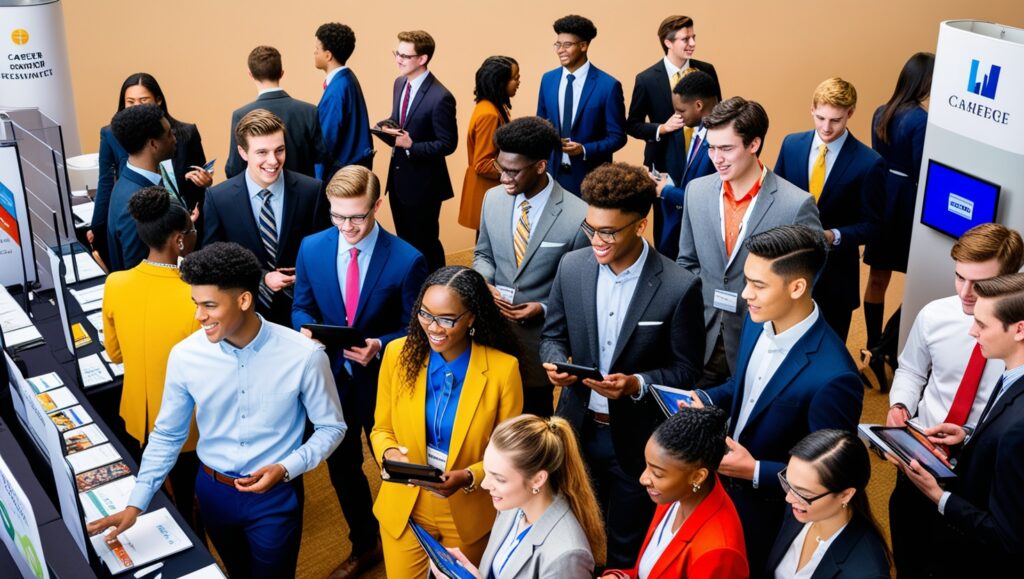
The European career fair landscape offers a unique blend of opportunities for students and recent graduates seeking internships. Understanding the key differences and specific features of European career fairs can significantly enhance your chances of securing valuable internship positions.
Key Differences Between European and North American Career Fairs
European career fairs often reflect the continent’s diverse cultural and linguistic landscape. Unlike the more standardized approach in North America, European fairs can vary significantly between countries. For instance:
- Language Requirements: Many European companies prioritize multilingual candidates. A study by the European Commission found that 40% of recruiters in the EU consider language skills crucial for future employment prospects.
- International Focus: European fairs often have a more international outlook. The Bologna Process, which aims to ensure comparability in higher education standards across Europe, has fostered a culture of cross-border educational and professional mobility.
- Formal Atmosphere: European career fairs tend to be more formal than their North American counterparts. The European Professional Network reports that maintaining a professional demeanor and adhering to local business etiquette are crucial for success at these events.
EU-Specific Internship Programs and Initiatives
The European Union offers several internship programs that are often promoted at career fairs:
- Blue Book Traineeship: This prestigious program offers 5-month paid internships at various EU institutions. According to the European Commission, over 1,800 trainees participate annually.
- Erasmus+ Traineeships: This initiative supports student mobility across Europe. In 2019, over 95,000 students participated in Erasmus+ traineeships, as reported by the European Commission.
- EURES (European Employment Services): This network facilitates job mobility within the EU and is often represented at career fairs, offering information on cross-border opportunities.
Language Considerations and International Opportunities
Language skills play a crucial role in the European job market. A report by the EU Skills Panorama highlights that proficiency in multiple languages can increase employability by up to 25%. At European career fairs, be prepared to:
- Showcase Language Skills: Many companies conduct on-the-spot language assessments.
- Tailor Your Approach: Research the working language of target companies and prepare accordingly.
- Consider Language-Specific Internships: Some organizations offer language-focused internships to help candidates improve their skills while gaining professional experience.
Exploring Career Fairs in Africa
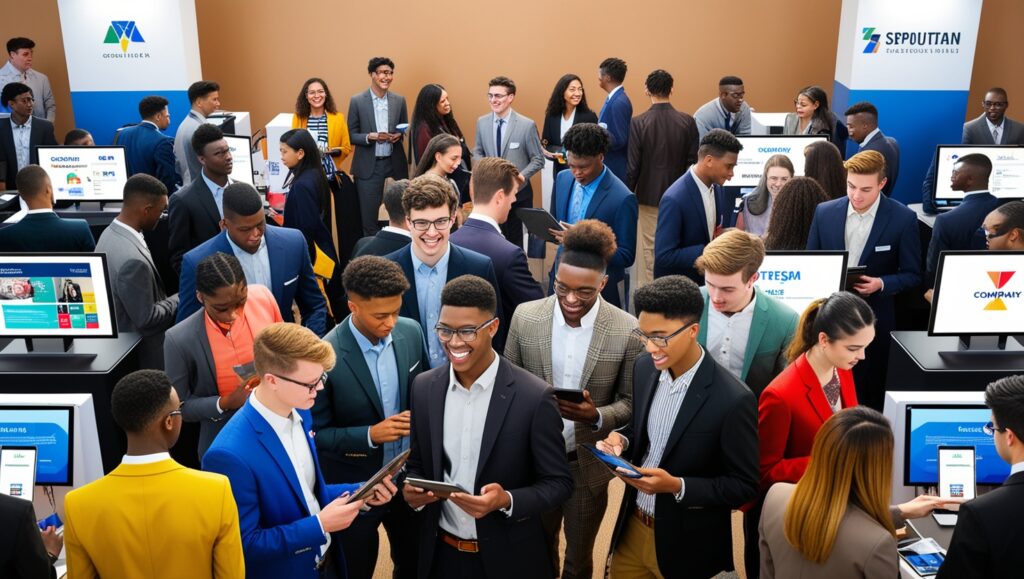
The African continent is experiencing rapid economic growth in various sectors, leading to an increase in internship opportunities and a growing importance of career fairs. Understanding the unique aspects of the African job market can help students and recent graduates navigate these events effectively.
Growing Importance of Career Fairs in African Job Markets
Career fairs are gaining significant traction across Africa as a vital link between education and employment. According to a report by the African Development Bank, over 60% of Africa’s population is under the age of 25, creating a substantial pool of young talent seeking internship and job opportunities. Career fairs serve as crucial platforms for connecting this young workforce with emerging industries.
- Tech Hubs: Cities like Nairobi, Lagos, and Cape Town have become tech hubs, hosting specialized career fairs. The GSMA reports that there are over 600 active tech hubs across Africa, many of which participate in or organize career events.
- Multinational Presence: Global companies are increasingly participating in African career fairs to tap into local talent. For instance, the Annual Careers in Africa Recruitment Summit attracts over 100 global employers.
- Government Initiatives: Many African governments are supporting career fairs as part of their youth employment strategies. The African Union’s Agenda 2063 emphasizes the importance of skills development and job creation for youth.
Unique Challenges and Opportunities in African Internship Landscape
The African internship landscape presents both challenges and opportunities:
- Skills Gap: A World Bank report highlights a significant skills gap in many African countries. Career fairs often feature skills development workshops to address this issue.
- Entrepreneurship Focus: Many African career fairs include a strong emphasis on entrepreneurship. The African Economic Outlook report indicates that 22% of Africa’s working-age population are starting businesses, the highest rate in the world.
- Informal Sector Transition: Career fairs in Africa often address the challenge of transitioning from the informal to the formal sector, which accounts for a significant portion of employment in many African countries.
- Digital Transformation: With the rapid digitalization of African economies, career fairs are increasingly featuring opportunities in digital skills and tech-enabled sectors.
Highlighting Major Career Fair Events Across the Continent
Several notable career fair events take place across Africa:
- Africa Career Expo: This pan-African virtual career fair connects talent from across the continent with global employers.
- Nigeria International Career Fair: One of the largest in West Africa, this fair attracts over 100 companies and thousands of job seekers annually.
- Kenya University Career Fair: This event brings together multiple universities and employers, focusing on bridging the gap between academia and industry.
- South African Graduate Recruiters Association (SAGEA) Fairs: These fairs are held at various universities across South Africa, connecting students with top graduate employers.
- Morocco’s Forum International de l’Etudiant: This fair combines educational opportunities with career prospects, attracting participants from across North Africa and Europe.
By understanding these unique aspects of career fairs in Europe and Africa, students and recent graduates can better position themselves to take advantage of the diverse internship opportunities available across these regions.
Making the Most of Virtual Career Fairs
The rise of virtual career fairs has revolutionized the way students and recent graduates connect with potential employers. These online events offer unique advantages and challenges, requiring a different approach compared to traditional in-person fairs.
Technological Requirements and Platforms
To effectively participate in virtual career fairs, attendees must ensure they have the necessary technological setup:
- Stable Internet Connection: A reliable high-speed internet connection is crucial. According to a survey by Handshake, 68% of students cited internet issues as their top concern for virtual events.
- Updated Devices: Use a computer or tablet with a recent operating system. Smartphones are generally not recommended due to limited functionality.
- Audio and Video Equipment: A good quality webcam and microphone are essential. The National Association of Colleges and Employers (NACE) reports that 89% of employers prefer candidates who can engage in video conversations during virtual fairs.
- Familiarity with Platforms: Common platforms include Handshake, Brazen, and vFairs. Practice going through these platforms before the event. A study by the Career Leadership Collective found that students who familiarized themselves with the platform beforehand were 40% more likely to report a positive experience.
Etiquette for Online Interactions
Virtual career fairs require a different set of etiquette rules:
- Professional Environment: Choose a quiet, well-lit space with a neutral background. A LinkedIn survey found that 83% of hiring managers said the candidate’s environment during video calls impacts their perception.
- Dress Professionally: Despite being at home, dress as you would for an in-person event. This helps create a professional mindset and makes a good impression.
- Be Punctual: Log in early to troubleshoot any technical issues. According to NACE, 67% of employers view tardiness in virtual settings as negatively as in-person lateness.
- Maintain Eye Contact: Look directly into the camera when speaking to simulate eye contact. A study in the Journal of Nonverbal Behavior found that perceived eye contact in video calls significantly increases likability and perceived attentiveness.
Strategies for Standing Out in a Virtual Environment
To make a lasting impression in a virtual setting:
- Prepare Digital Materials: Have your resume, portfolio, and other relevant documents ready to share digitally. According to Jobscan, 98.8% of Fortune 500 companies use Applicant Tracking Systems, so ensure your digital documents are ATS-friendly.
- Engage Actively: Participate in chat functions and Q&A sessions. A survey by Yello found that 49% of recruiters said candidate engagement was the biggest challenge in virtual recruiting.
- Follow-Up Promptly: Send personalized follow-up emails within 24 hours. Include specific details from your conversation to jog the recruiter’s memory.
- Leverage Social Media: Connect with recruiters on LinkedIn after the fair. A study by JobVite revealed that 87% of recruiters use LinkedIn to vet candidates before inviting them to interview.
Effective Communication Strategies
Mastering communication strategies is crucial for making a strong impression at career fairs, whether virtual or in-person. Effective communication can significantly increase your chances of securing internship opportunities.
Asking Thoughtful Questions
Preparing and asking insightful questions demonstrates your genuine interest and research:
- Company-Specific Queries: Ask about recent projects, company culture, or future goals. A survey by Glassdoor found that 88% of hiring decision-makers agree that an informed candidate is a quality candidate.
- Role-Related Questions: Inquire about day-to-day responsibilities, team dynamics, or growth opportunities within the internship role.
- Industry Trends: Ask about how current industry trends are affecting the company. This showcases your awareness of the broader business landscape.
- Avoid Basic Questions: Steer clear of questions easily answered by the company website. According to a study by the National Association of Colleges and Employers (NACE), 41% of employers said asking informed questions is one of the most important attributes in a candidate.
Active Listening Techniques
Effective communication is a two-way street. Employing active listening techniques can help you engage more meaningfully:
- Pay Full Attention: Focus entirely on the speaker, avoiding distractions. In virtual settings, this means keeping other tabs or applications closed.
- Use Non-Verbal Cues: Nod and maintain eye contact to show engagement. In virtual environments, ensure your camera is positioned to show these cues clearly.
- Paraphrase and Summarize: Reflect back what you’ve heard to confirm understanding. A study in the International Journal of Listening found that this technique improves comprehension by up to 40%.
- Take Notes: Jot down key points during conversations. This demonstrates attentiveness and provides material for follow-up communications.
Following Up with Recruiters Post-Event
The follow-up process is crucial for solidifying connections made during the career fair:
- Timing: Send follow-up emails within 24-48 hours after the event. A survey by SHRM found that 91% of hiring managers appreciate prompt follow-ups.
- Personalization: Reference specific conversations or topics discussed during your interaction. According to a study by Experian, personalized emails deliver 6x higher transaction rates.
- Reiterate Interest: Clearly express your continued interest in the internship opportunity and the company.
- Provide Additional Information: If relevant, include links to your portfolio or any additional materials discussed during your conversation.
- Request Next Steps: Politely inquire about the next steps in the application process. A survey by Robert Half found that 76% of hiring managers are impressed by candidates who ask about next steps.
- Professional Tone: Maintain a professional tone in all communications. Proofread your emails carefully for any errors.
- LinkedIn Connection: Consider sending a LinkedIn connection request with a personalized message. A study by JobVite revealed that 77% of recruiters use LinkedIn to vet candidates before inviting them to interview.
By mastering these communication strategies, you can significantly enhance your effectiveness at career fairs.
Turning Career Fair Connections into Internship Opportunities
Successfully navigating a career fair is just the first step. The real challenge lies in converting these initial connections into tangible internship opportunities. This process requires strategic follow-up, effective use of professional networks, and a thorough understanding of post-fair application procedures.
Proper Follow-up Etiquette
The way you follow up after a career fair can significantly impact your chances of securing an internship:
- Timely Communication: Send follow-up emails within 24-48 hours after the event. A study by TalentLyft found that 91% of employers are favorably impressed by prompt follow-ups.
- Personalization: Reference specific conversations or topics discussed during your interaction. According to a report by Epsilon, personalized emails have an open rate 29% higher than non-personalized ones.
- Express Gratitude: Thank the recruiter for their time and any insights they shared. A survey by Robert Half revealed that 80% of hiring managers consider thank-you notes influential when evaluating candidates.
- Reiterate Interest: Clearly restate your enthusiasm for the internship opportunity and the company. Be specific about why you’re interested and how you can contribute.
- Provide Additional Information: If relevant, include links to your portfolio or any additional materials discussed during your conversation. According to LinkedIn, profiles with featured skills are 27 times more likely to be discovered in searches.
Leveraging Social Media and Professional Networks
In today’s digital age, effectively using social media and professional networks can significantly boost your internship prospects:
- LinkedIn Connections: Send personalized LinkedIn connection requests to recruiters you met. A study by JobVite found that 87% of recruiters use LinkedIn to vet candidates.
- Engage with Company Content: Follow the company’s social media accounts and engage thoughtfully with their content. This demonstrates ongoing interest and industry engagement.
- Join Professional Groups: Participate in relevant LinkedIn groups or professional forums. According to LinkedIn, members who join and participate in groups are 5 times more likely to get job offers.
- Share Industry-Related Content: Regularly post or share content related to your field of interest. This helps establish your professional brand and demonstrates your passion for the industry.
What You Need To Know About the Application Process Post-Fair
Understanding and effectively managing the post-fair application process is crucial:
- Follow Application Instructions: Adhere strictly to the company’s specified application process. A CareerBuilder survey found that 63% of employers are less likely to interview candidates who don’t follow instructions.
- Tailor Your Application: Customize your resume and cover letter for each internship opportunity. According to Glassdoor, tailoring your application materials increases your chances of getting an interview by 50%.
- Meet Deadlines: Submit your application well before the deadline. A survey by Jobvite revealed that 70% of employers prefer candidates who submit applications early.
- Prepare for Next Steps: Research common interview questions and practice your responses. According to NACE, candidates who prepare for interviews are 2.6 times more likely to get job offers.
- Stay Organized: Keep track of all applications, follow-ups, and deadlines. Tools like Trello or Asana can help manage your internship search effectively.
Common Mistakes to Avoid
While pursuing internship opportunities through career fairs, it’s crucial to be aware of and avoid common pitfalls that can hinder your success. Being mindful of these mistakes can significantly improve your chances of securing valuable internships.
Lack of Preparation
One of the most critical errors is failing to adequately prepare for the career fair:
- Research Deficit: Not researching participating companies beforehand can lead to missed opportunities. A study by NACE found that 80% of employers rate knowledge of their organization as very or extremely influential in hiring decisions.
- Inadequate Materials: Arriving without sufficient copies of your resume or without a well-crafted elevator pitch can leave a poor impression. According to a survey by TopResume, 65% of hiring managers said they’ve eliminated candidates due to poor resume quality.
- Improper Attire: Dressing inappropriately for the event can negatively impact first impressions. A study in the Journal of Social Psychology found that individuals dressed in business attire were perceived as more competent and trustworthy.
Solution: Create a pre-fair checklist including company research, document preparation, and appropriate attire selection. Set aside dedicated time for thorough preparation at least a week before the event.
Focusing Only on Well-Known Companies
Many attendees make the mistake of gravitating solely towards big-name companies:
- Missed Opportunities: Overlooking smaller or less familiar companies can result in missing out on valuable internship experiences. A report by the National Small Business Association found that small businesses offer more hands-on experience and responsibility to interns.
- Overcrowded Booths: Popular company booths are often crowded, limiting your interaction time. This can reduce your chances of making a meaningful connection.
- Narrow Perspective: Focusing only on well-known companies can limit your understanding of the industry landscape and potential career paths.
Solution: Research and create a diverse list of companies to visit, including a mix of large corporations, mid-sized companies, and startups. Allocate your time strategically to ensure you engage with a variety of potential employers.
Neglecting to Network with Fellow Attendees
Many career fair participants overlook the value of peer networking:
- Missed Information: Fellow attendees can be valuable sources of information about companies and opportunities. A LinkedIn survey found that 85% of jobs are filled through networking.
- Future Connections: Your peers today could be your colleagues or industry contacts tomorrow. Building these relationships early can be beneficial for your long-term career.
- Collaborative Opportunities: Engaging with peers can lead to collaborative projects or shared insights that enhance your internship search.
Solution: Actively engage with other attendees while waiting in lines or during breaks. Exchange contact information and connect on professional networking platforms like LinkedIn.
Failing to Follow Up
Perhaps one of the most critical mistakes is not following up after the career fair:
- Lost Momentum: Failing to follow up can cause the connections you made to fade quickly. According to a study by SHRM, 91% of hiring managers appreciate follow-ups after initial meetings.
- Missed Opportunities: Without follow-up, you may miss out on internship openings that weren’t available during the fair. A survey by CareerBuilder found that 27% of employers have openings that are never advertised publicly.
- Lack of Persistence: Not following up can be perceived as a lack of genuine interest. According to Robert Half, 76% of hiring managers are impressed by candidates who ask about next steps.
Solution: Create a follow-up strategy before the fair. Send personalized emails within 24-48 hours after the event, referencing specific conversations and reiterating your interest. Set reminders to follow up again if you don’t hear back within a week or two.
By being aware of these common mistakes and actively working to avoid them, you can significantly enhance your career fair experience and increase your chances of securing valuable internship opportunities.
